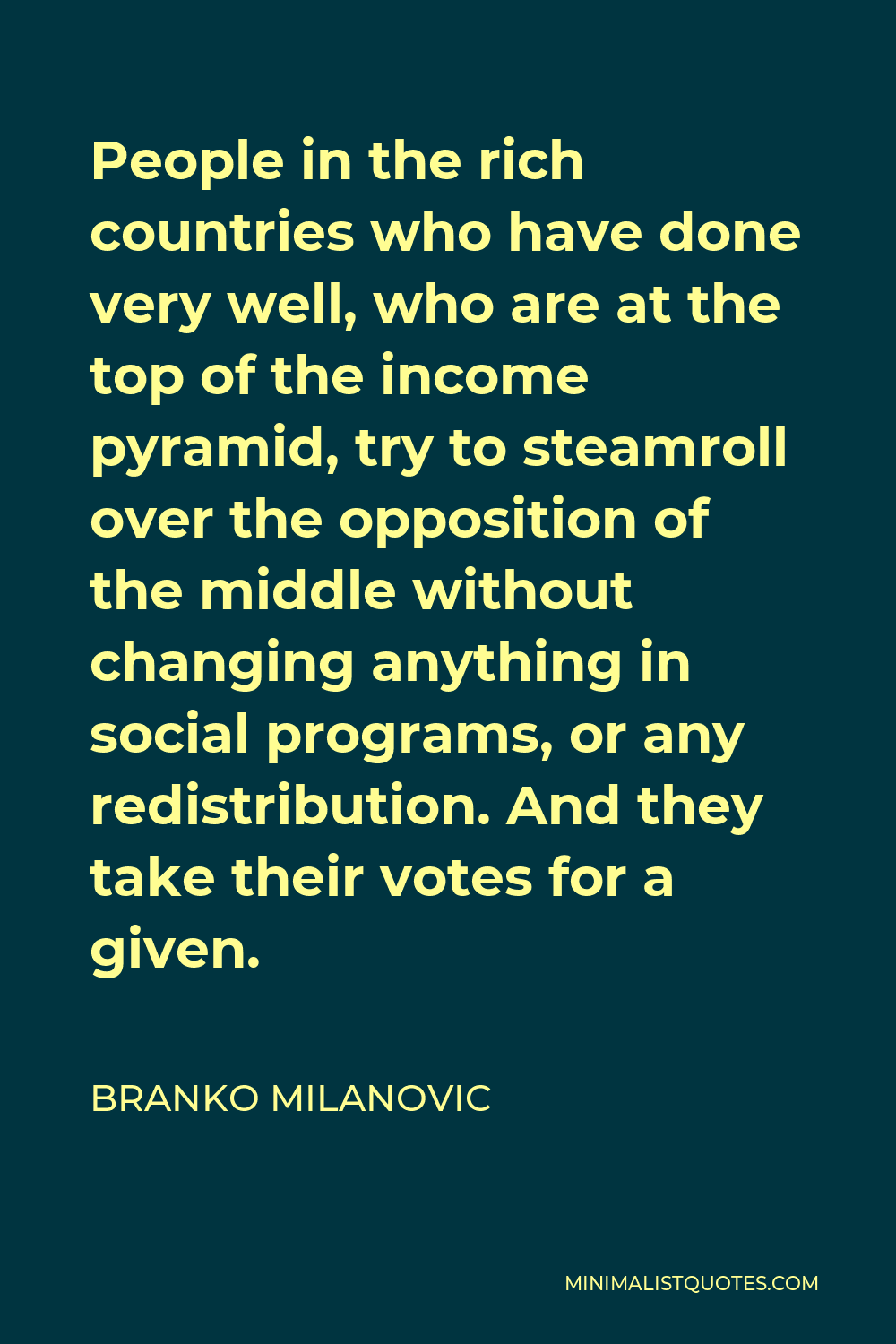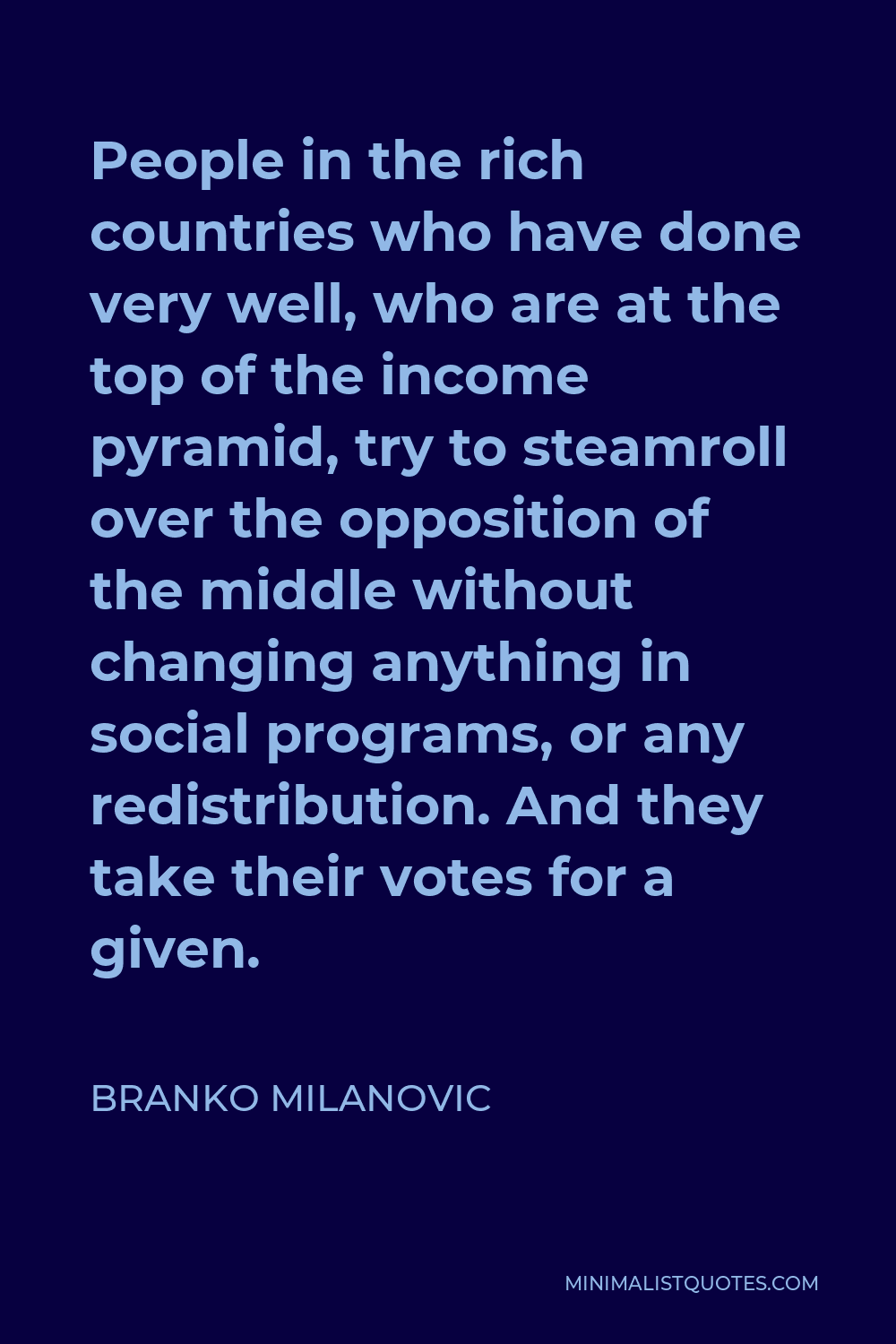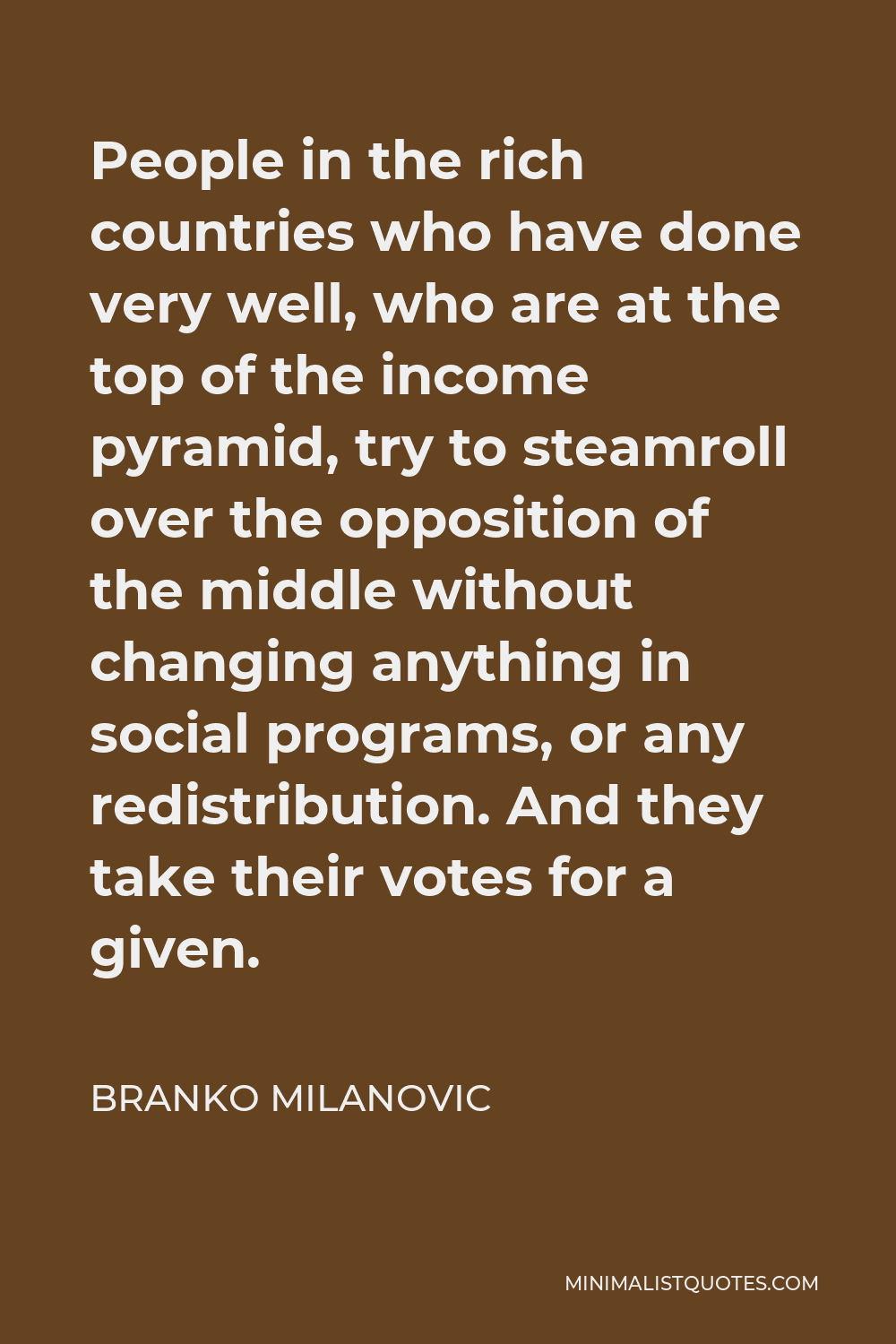I couldn’t find where to submit my inequality papers because there was no such topic. There was welfare, there was health issues, there was trade obviously. Finance had hundreds of sub groups.
BRANKO MILANOVICPeople in the rich countries who have done very well, who are at the top of the income pyramid, try to steamroll over the opposition of the middle without changing anything in social programs, or any redistribution. And they take their votes for a given.
More Branko Milanovic Quotes
-





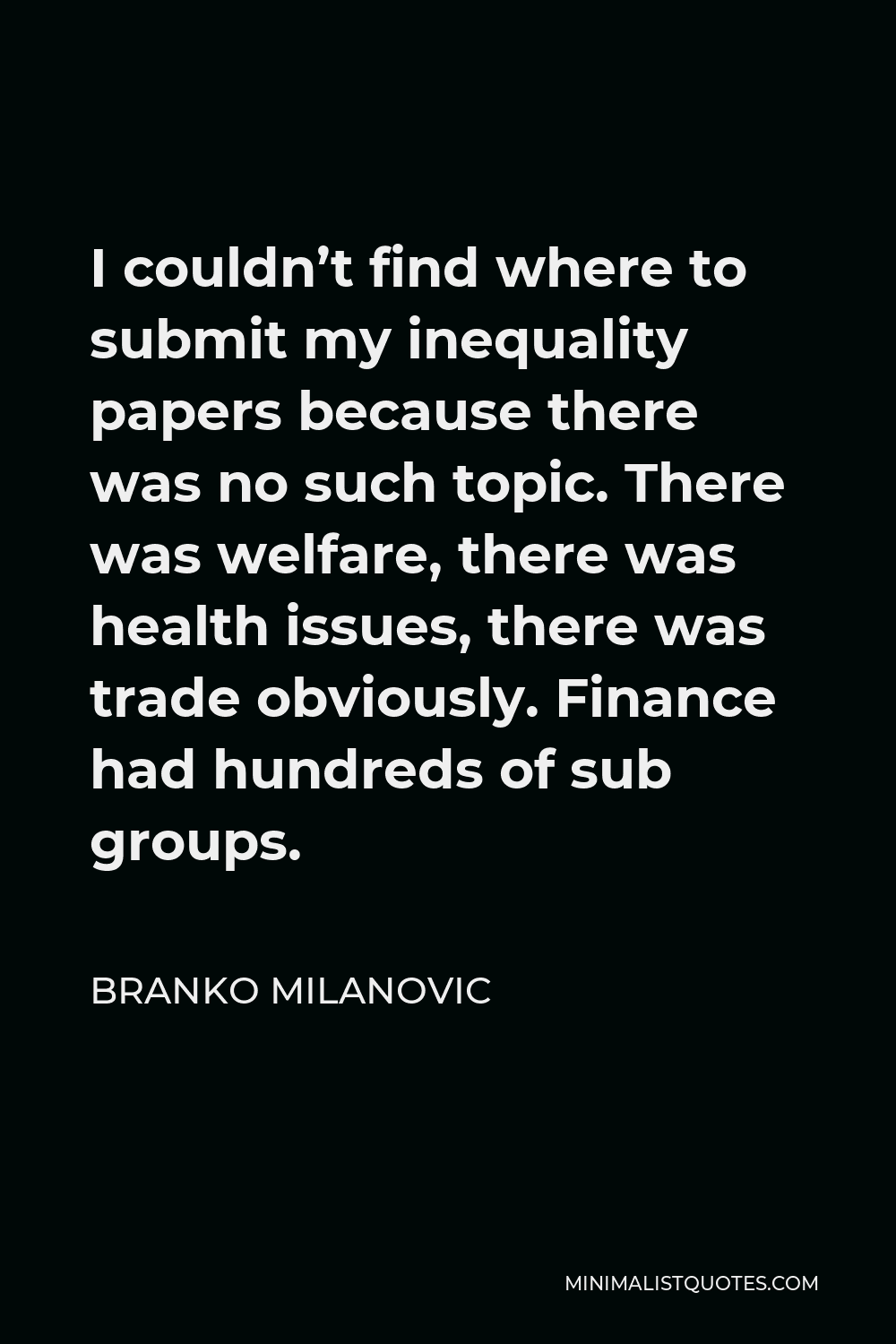
-





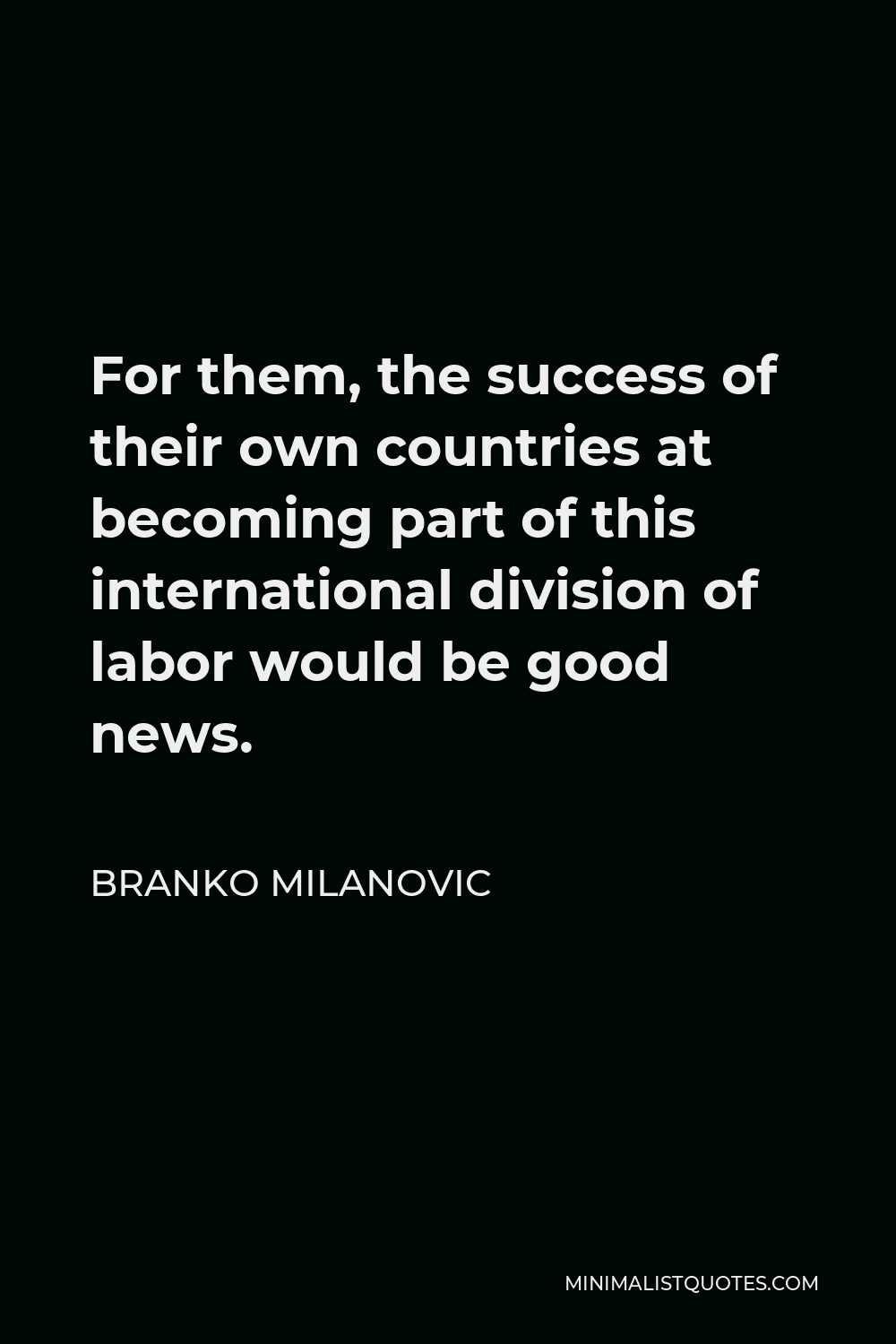
For them, the success of their own countries at becoming part of this international division of labor would be good news.
BRANKO MILANOVIC -





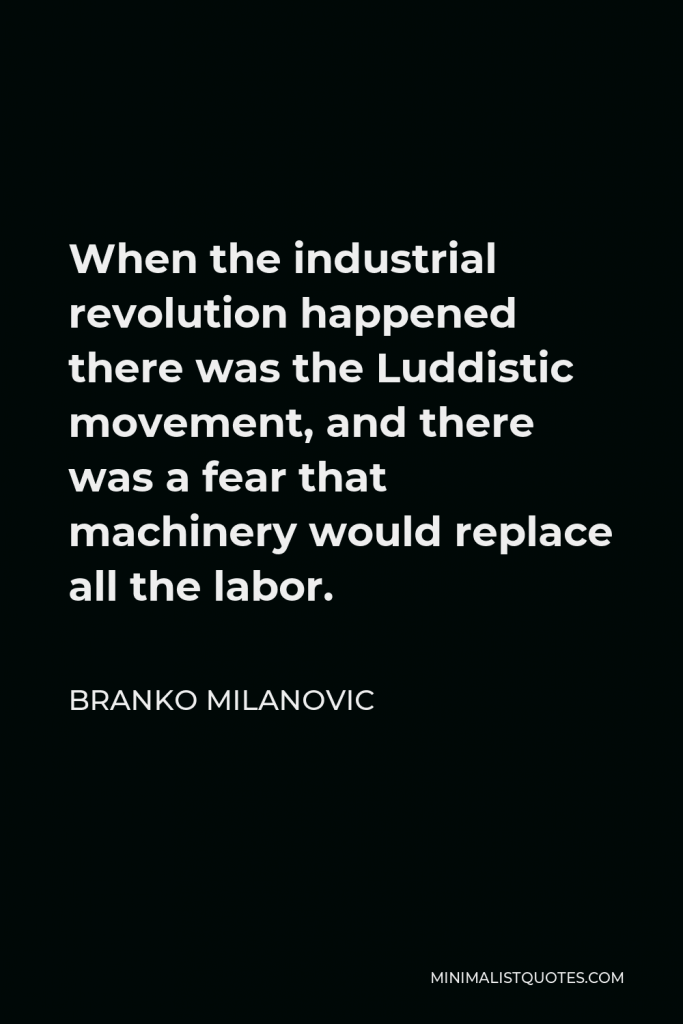

When the industrial revolution happened there was the Luddistic movement, and there was a fear that machinery would replace all the labor.
BRANKO MILANOVIC -





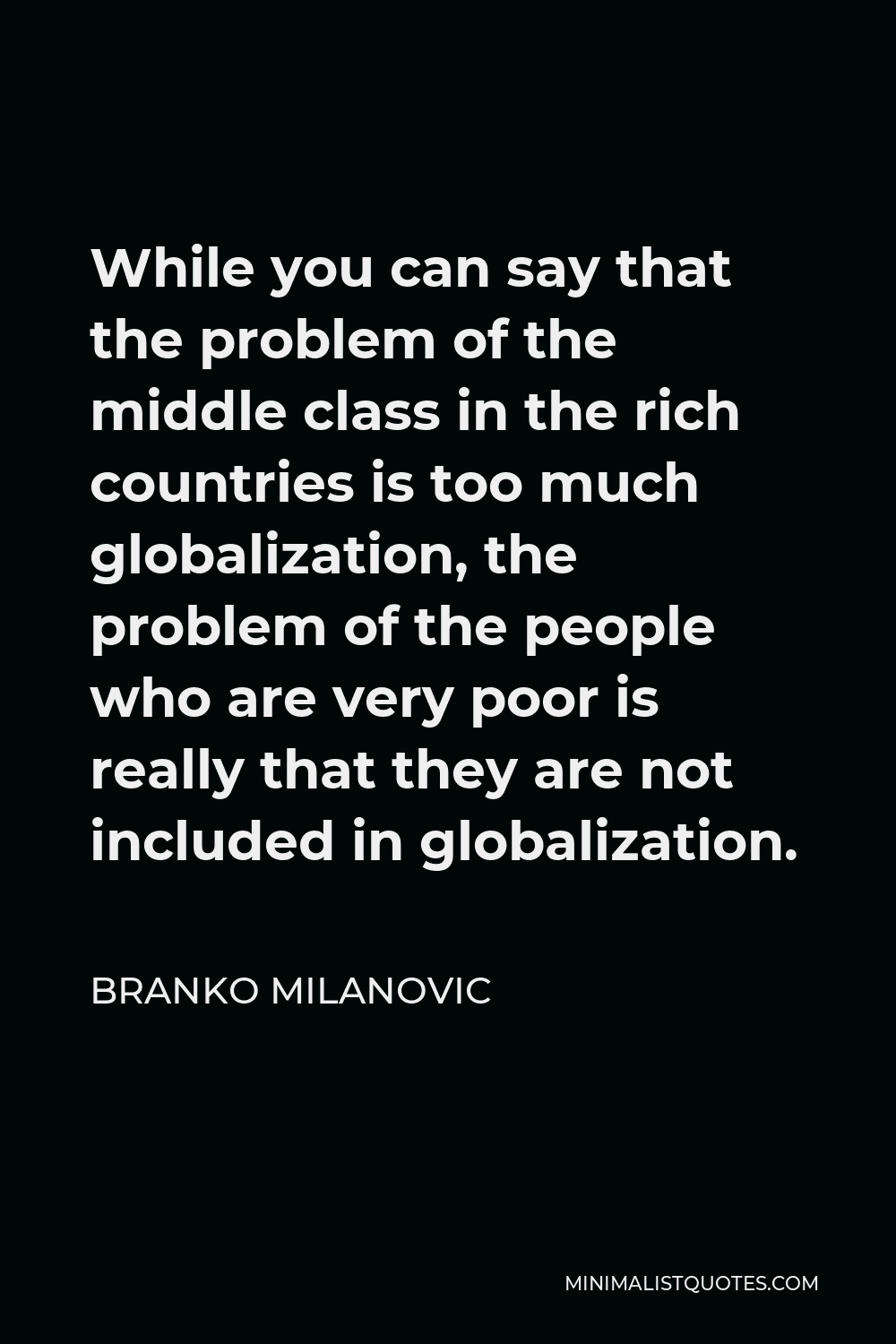
While you can say that the problem of the middle class in the rich countries is too much globalization, the problem of the people who are very poor is really that they are not included in globalization.
BRANKO MILANOVIC -





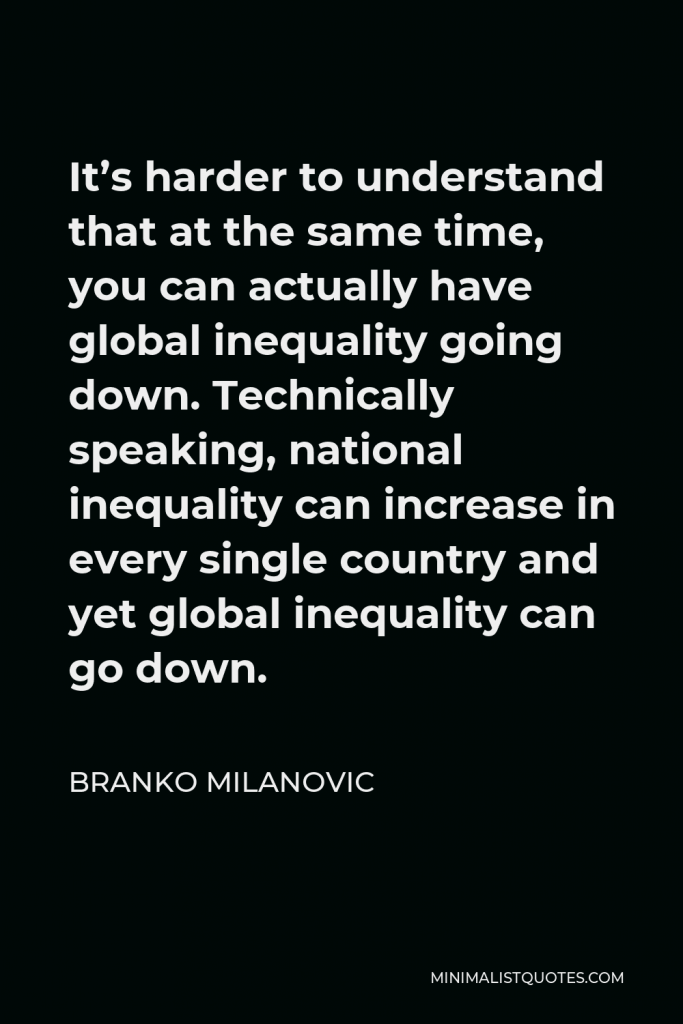

It’s harder to understand that at the same time, you can actually have global inequality going down. Technically speaking, national inequality can increase in every single country and yet global inequality can go down.
BRANKO MILANOVIC -





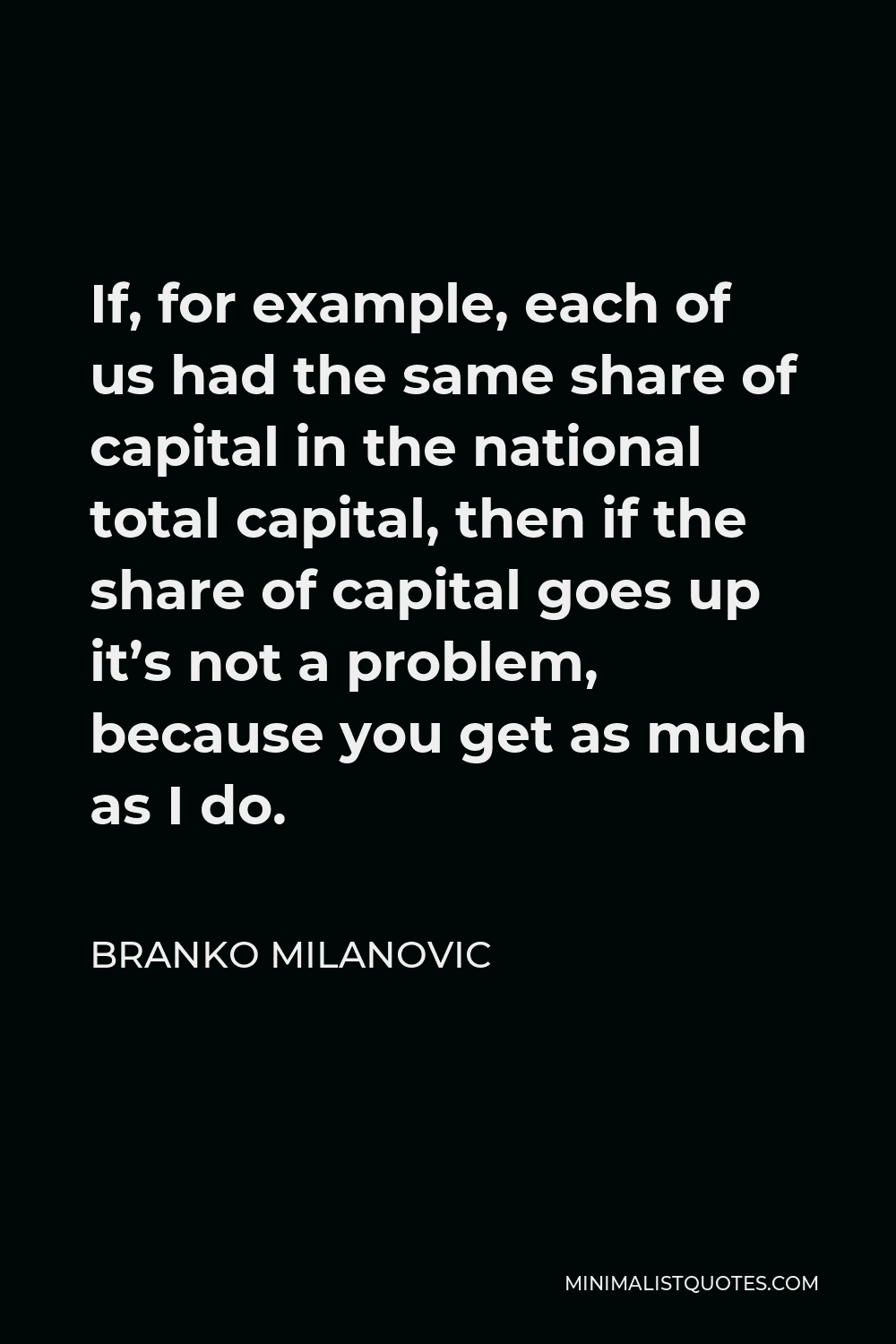
If, for example, each of us had the same share of capital in the national total capital, then if the share of capital goes up it’s not a problem, because you get as much as I do.
BRANKO MILANOVIC -





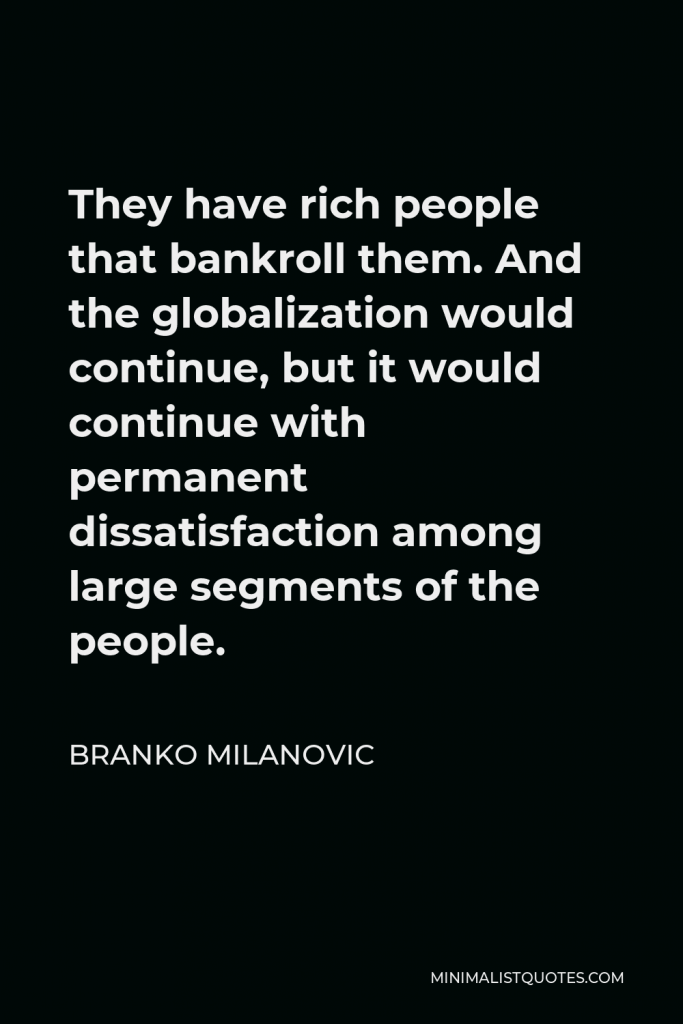

They have rich people that bankroll them. And the globalization would continue, but it would continue with permanent dissatisfaction among large segments of the people.
BRANKO MILANOVIC -





![Branko Milanovic Quote - When they see the word inequality it makes them upset, because [it means] you want to take money from them.](https://minimalistquotes.com/images/when-they-see-the-word-inequality-it-makes-them-up.jpg)
When they see the word inequality it makes them upset, because [it means] you want to take money from them.
BRANKO MILANOVIC -





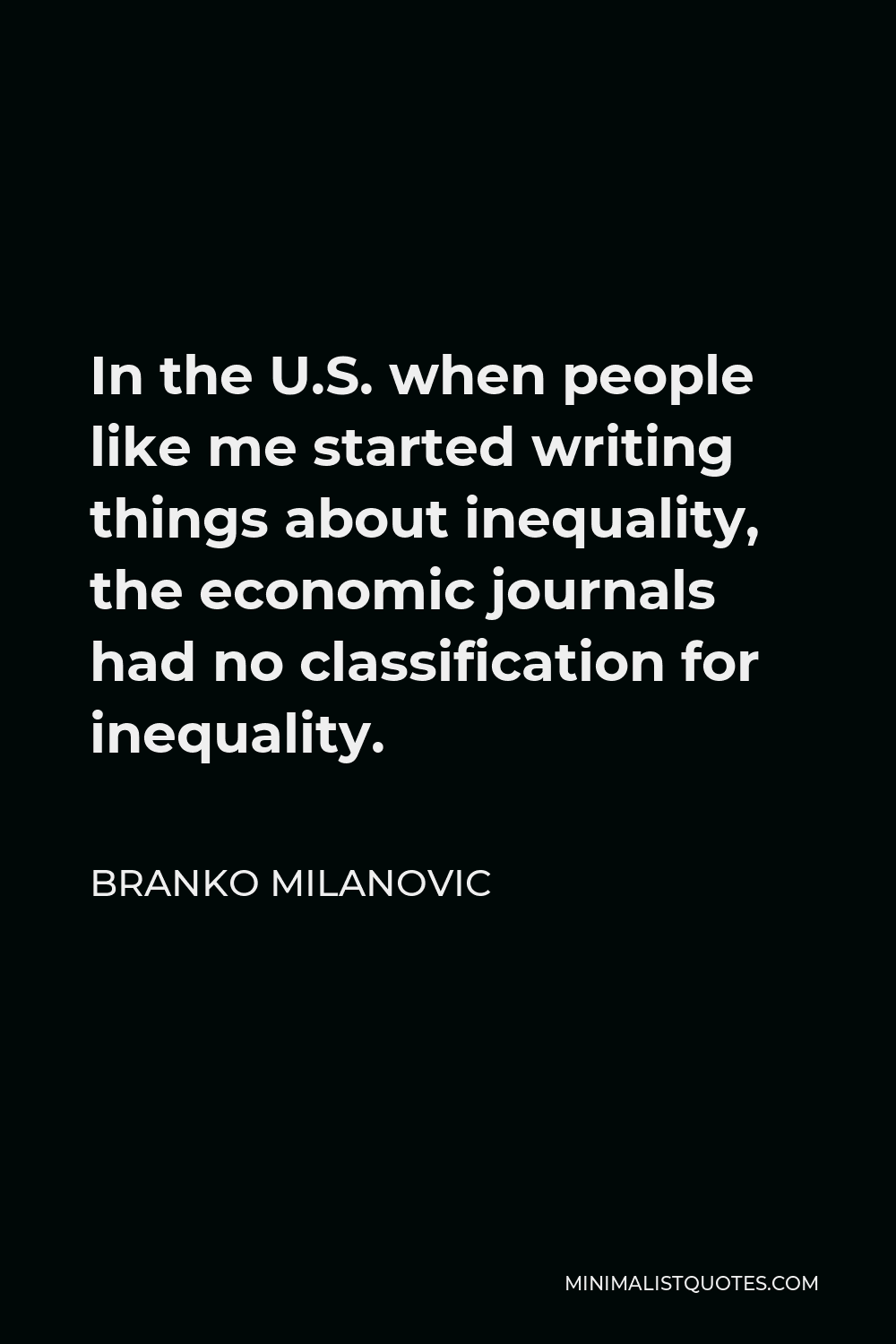
In the U.S. when people like me started writing things about inequality, the economic journals had no classification for inequality.
BRANKO MILANOVIC -





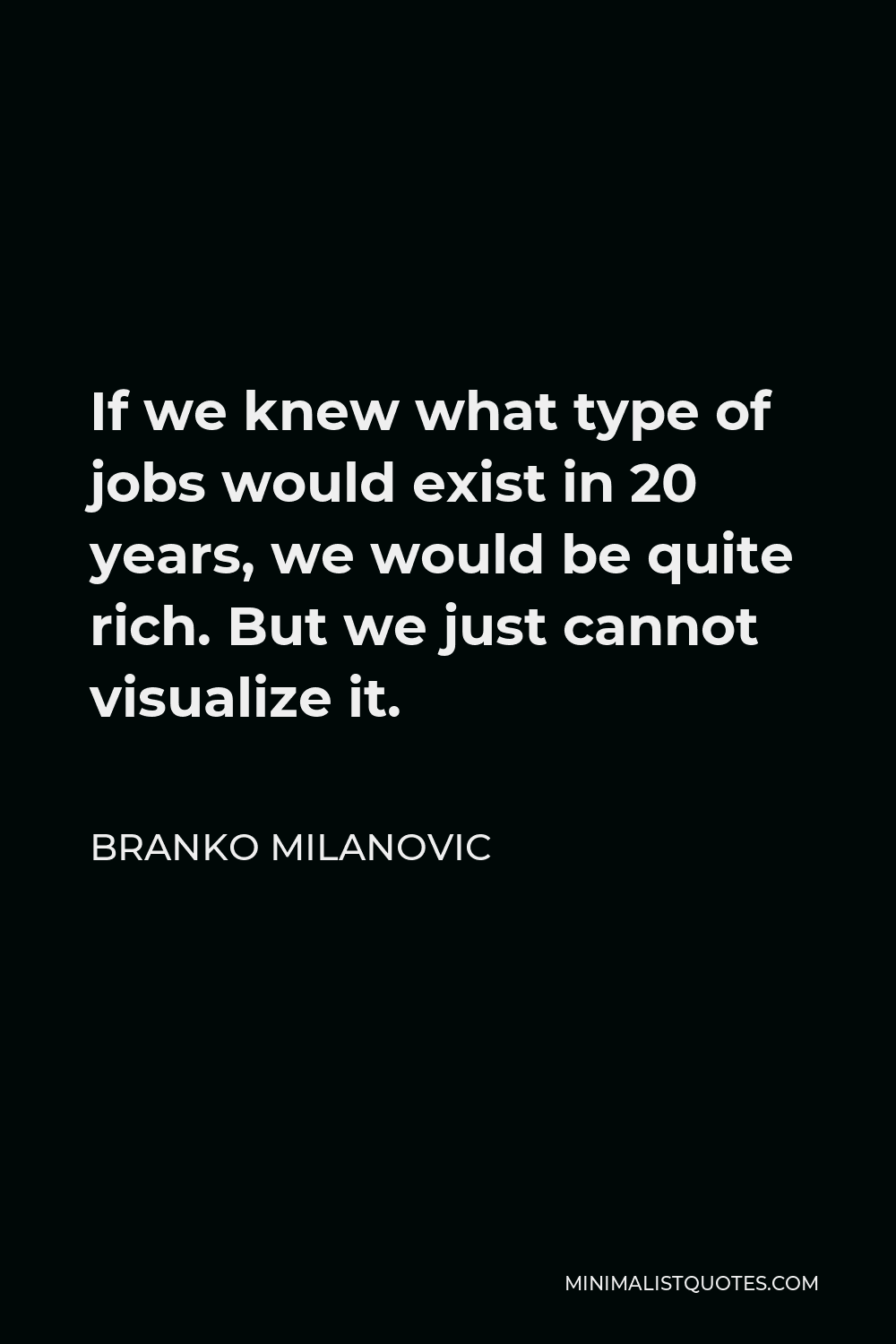
If we knew what type of jobs would exist in 20 years, we would be quite rich. But we just cannot visualize it.
BRANKO MILANOVIC -





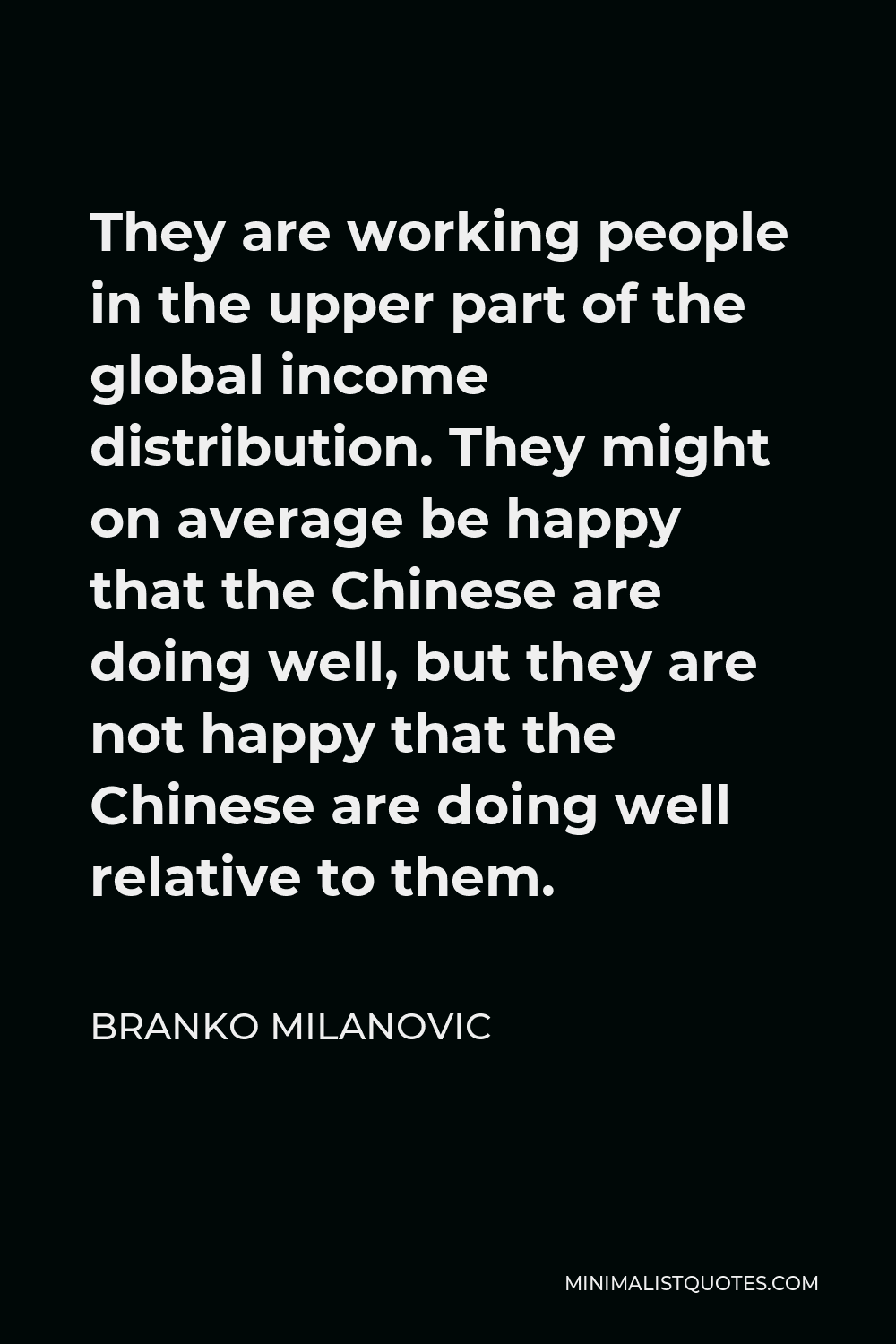
They are working people in the upper part of the global income distribution. They might on average be happy that the Chinese are doing well, but they are not happy that the Chinese are doing well relative to them.
BRANKO MILANOVIC -





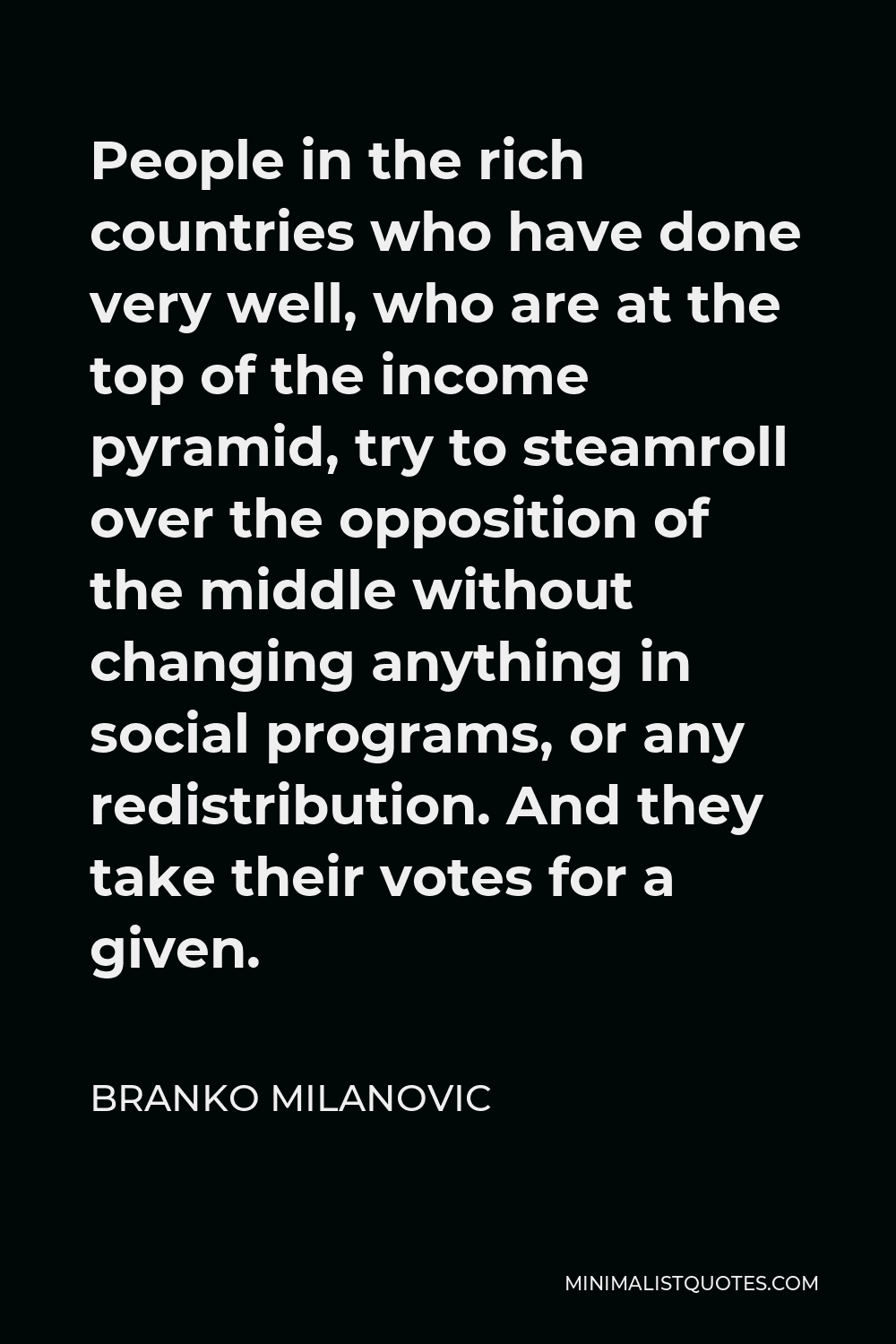
People in the rich countries who have done very well, who are at the top of the income pyramid, try to steamroll over the opposition of the middle without changing anything in social programs, or any redistribution. And they take their votes for a given.
BRANKO MILANOVIC -





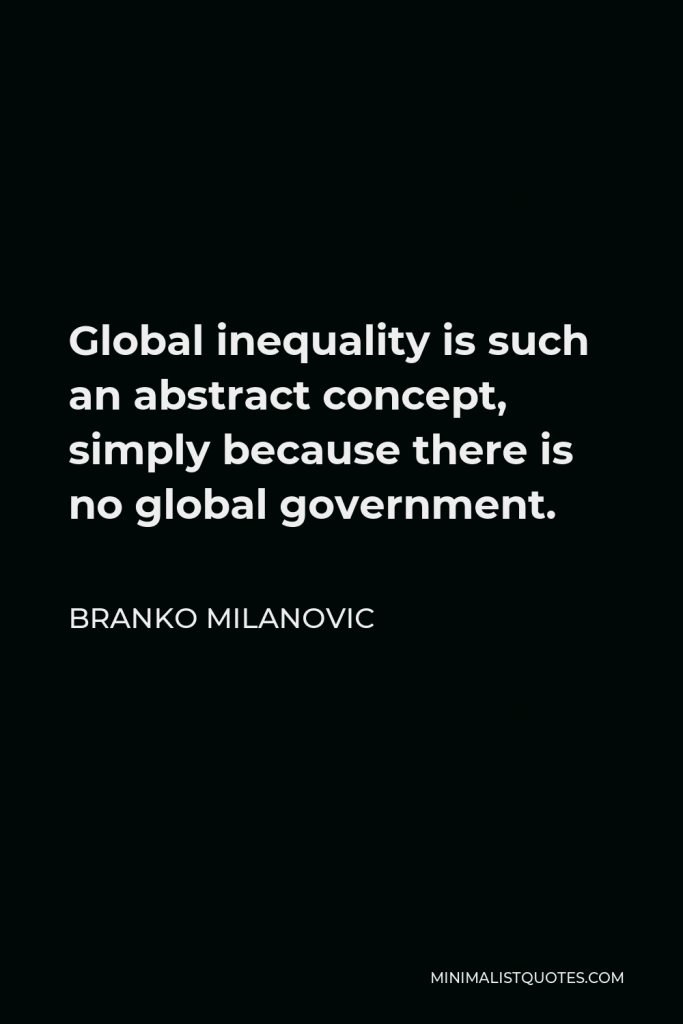

Global inequality is such an abstract concept, simply because there is no global government.
BRANKO MILANOVIC -





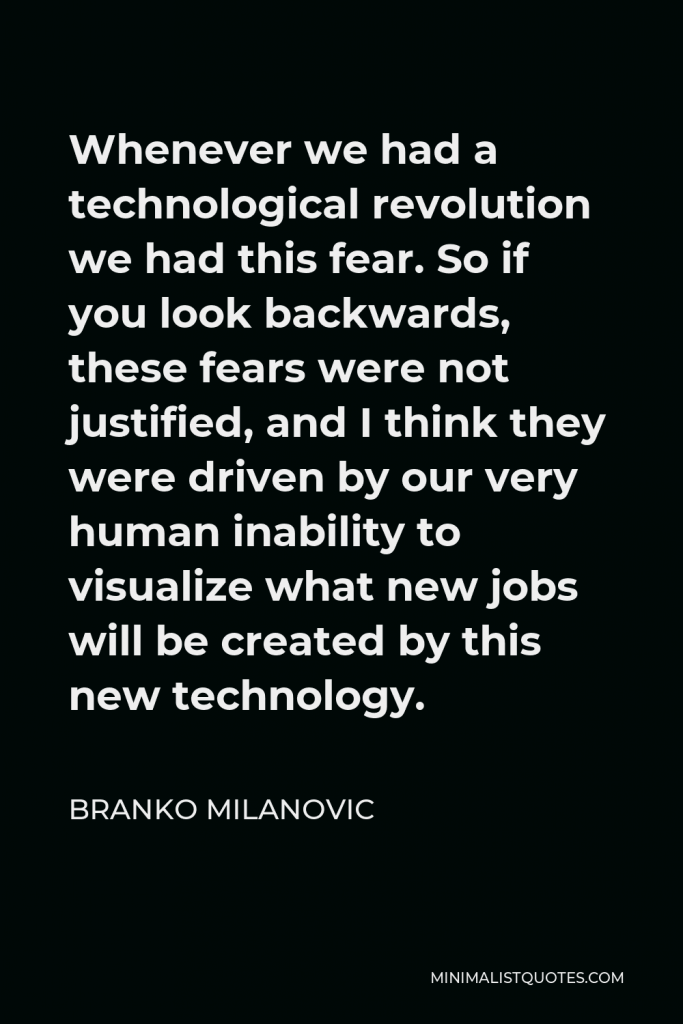

Whenever we had a technological revolution we had this fear. So if you look backwards, these fears were not justified, and I think they were driven by our very human inability to visualize what new jobs will be created by this new technology.
BRANKO MILANOVIC -





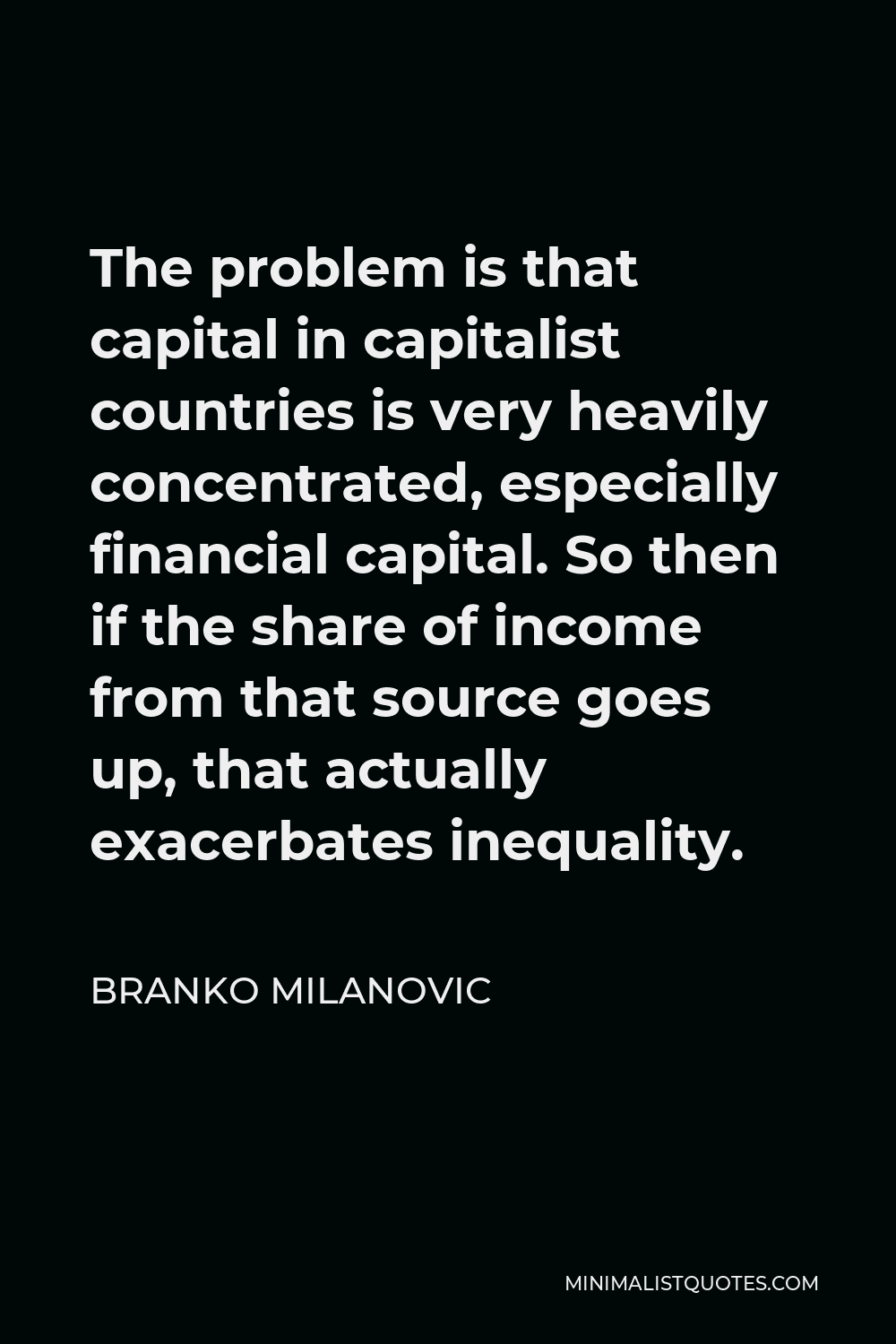
The problem is that capital in capitalist countries is very heavily concentrated, especially financial capital. So then if the share of income from that source goes up, that actually exacerbates inequality.
BRANKO MILANOVIC
